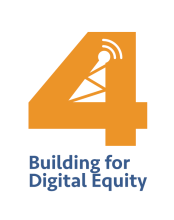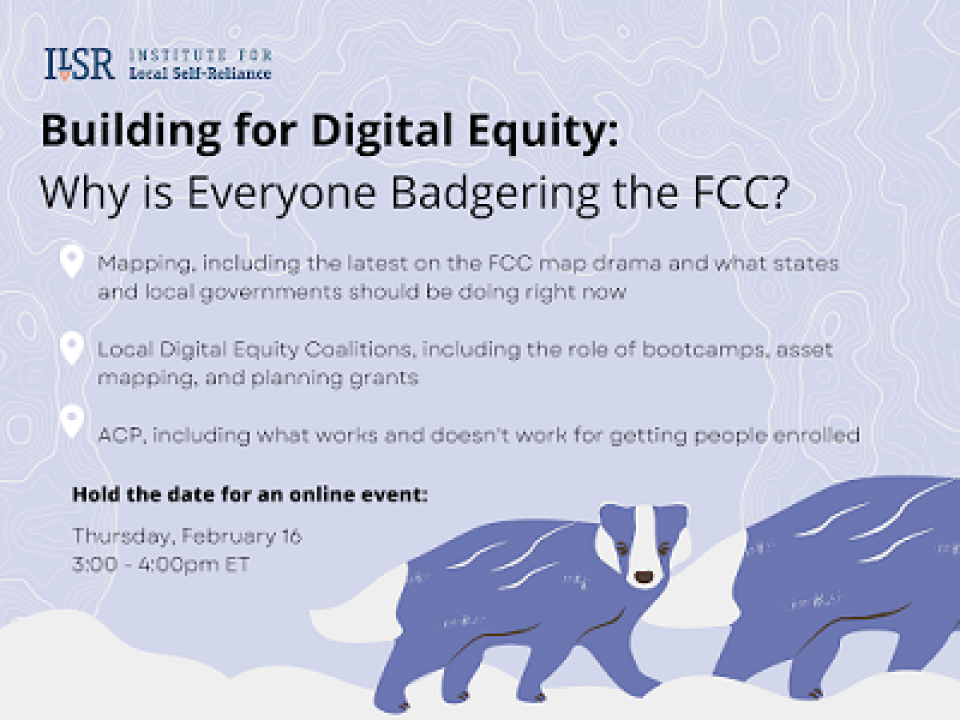B4DE Starts Tomorrow with NDIA’s Angela Siefer as Keynote
In just over 24 hours our next Building for Digital Equity (#B4DE) event goes live.
Tomorrow, June 7, beginning at 3 pm ET, #B4DE promises to offer engaging examples, practical tools, and nuggets of insight as digital equity advocates across the nation prepare to take advantage of unprecedented federal funds and programs spurred by the Digital Equity Act and bipartisan infrastructure law.
This free event, sponsored once again by UTOPIA Fiber, will be headlined by National Digital Inclusion Alliance (NDIA) Executive Director Angela Siefer. She will offer thoughts on what those working to close the digital divide should be thinking about while setting priorities in this historic moment, as states are developing their digital equity plans and getting ready to receive their share of the $42.5 billion contained in the Infrastructure Investment and Jobs Act (IIJA).
Though seats are filling up fast, there is still time to register here.
The livestream will be available (and later archived) on Facebook, YouTube, Twitter, and LinkedIn, with live viewer questions answered by the panels. We recommend viewing it on YouTube here where the live chat will be most lively.
Co-hosted by NDIA Training & Community Engagement Manager Pamela Rosales and ILSR’s Community Broadband Networks Director Christopher Mitchell, the 75-minute online webinar brings together a variety of front-line experts and digital inclusion practitioners who will share focused, concise lessons-learned and best-practices relevant for those working in both rural communities and urban centers.





